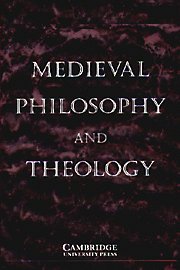No CrossRef data available.
Article contents
Scotus on Morality and Nature
Published online by Cambridge University Press: 30 July 2001
Abstract
This article is part of a larger project defending a version of divine command theory in ethics. What I am interested in from Scotus is that he combines such a theory with a view that grounds ethics in nature, especially human nature. In order to understand this combination, we need to start with his view of the two affections. Scotus takes from Anselm the idea that humans have in their will two basic affections (or intellectual appetites), what he calls the affection for advantage (affectio commodi) and the affection for justice (affectio justitiae). All acts of the will, on this view, stem from one affection or the other. Behind Anselm is Augustine's insistence, which Scotus alre refers to frequently, that God is to be enjoyed and not used (even though entering into God's love is our greatest happiness), and everything else is to be used and not enjoyed.
- Type
- Research Article
- Information
- Copyright
- © 1999 Cambridge University Press




